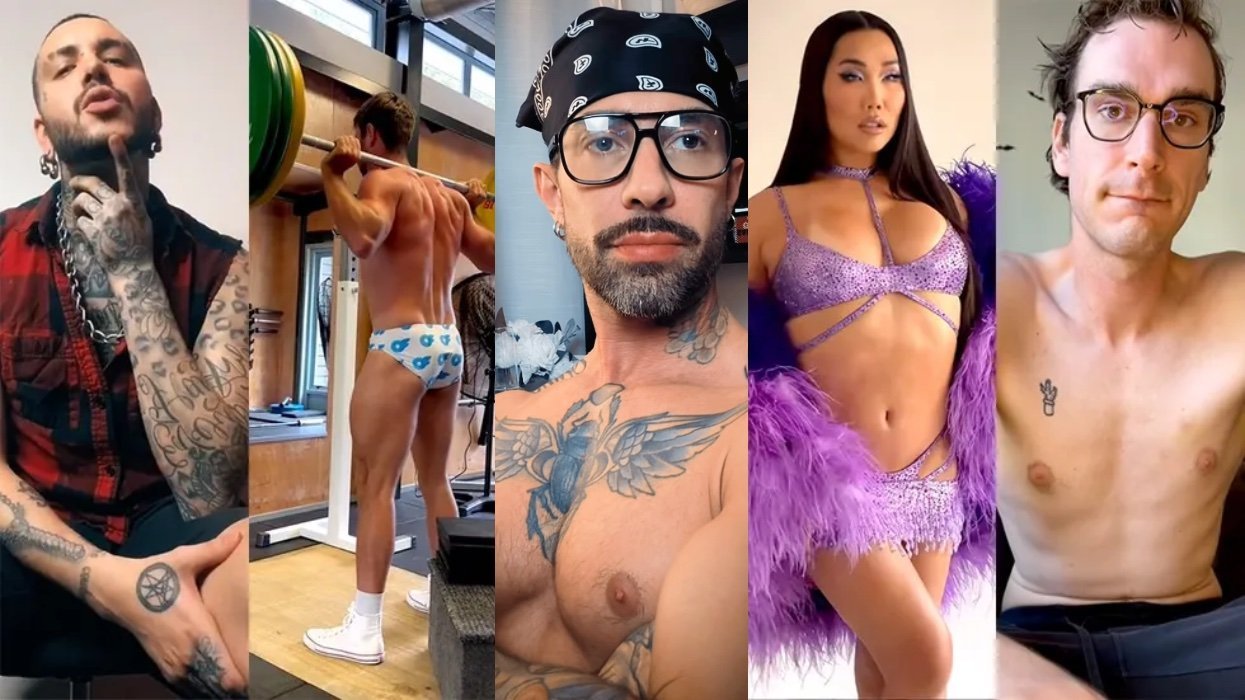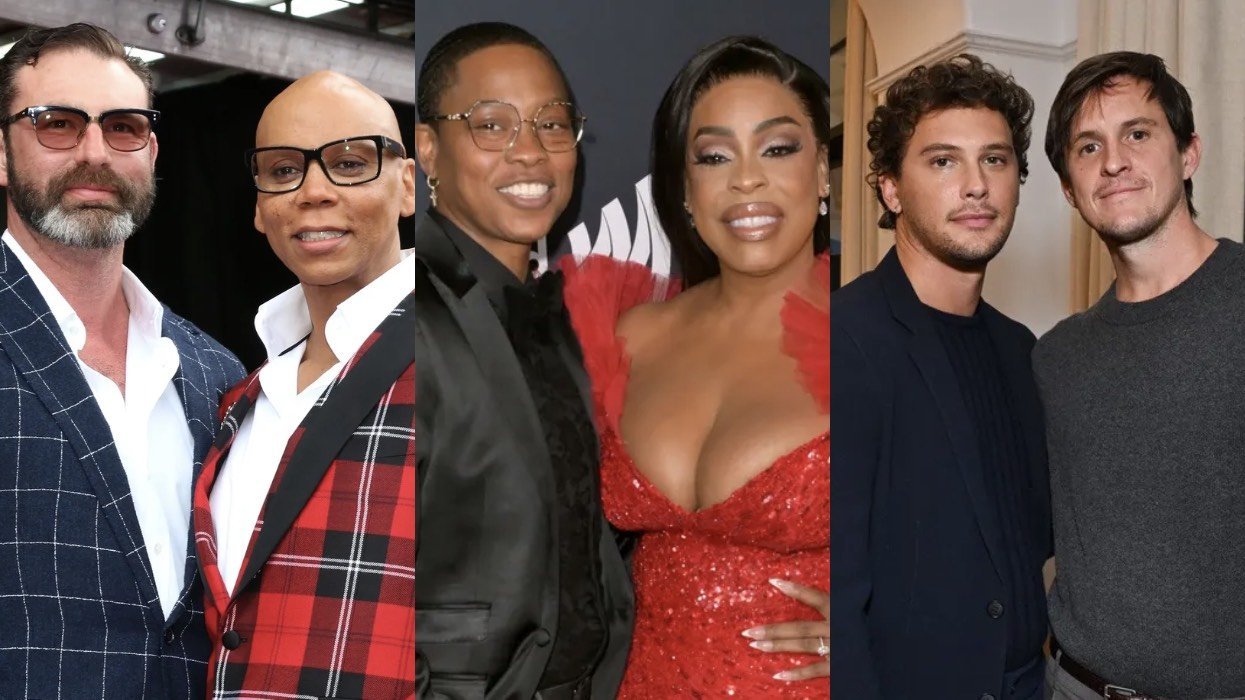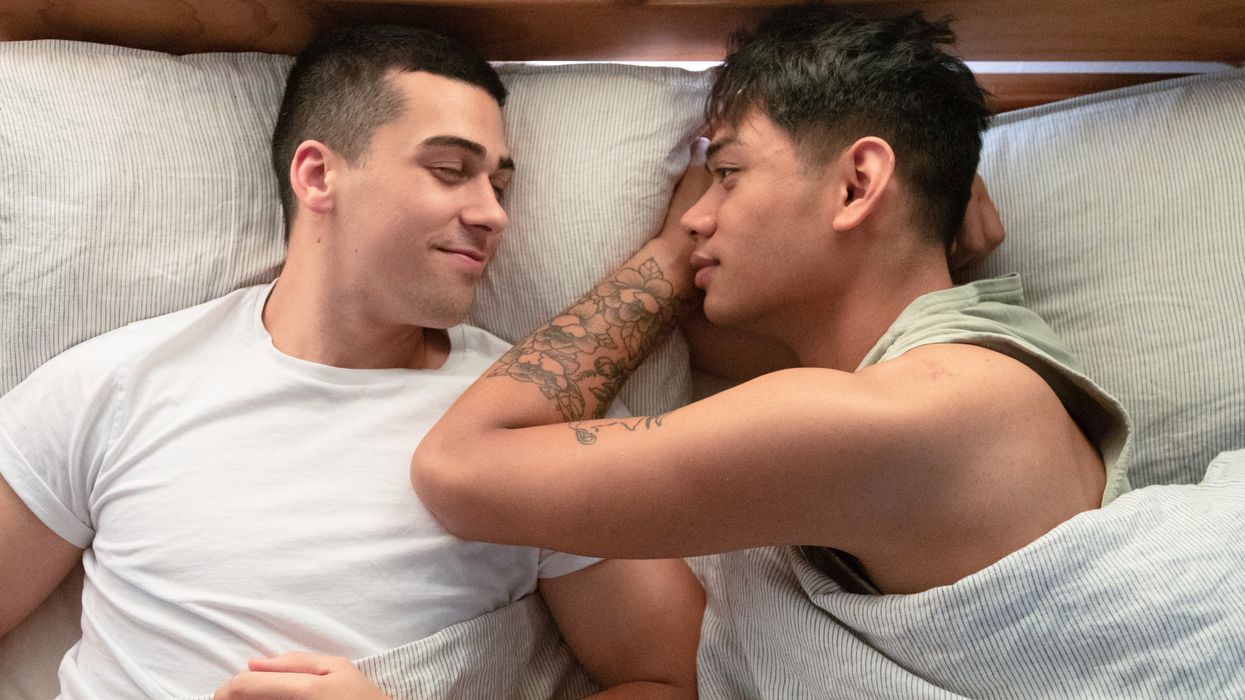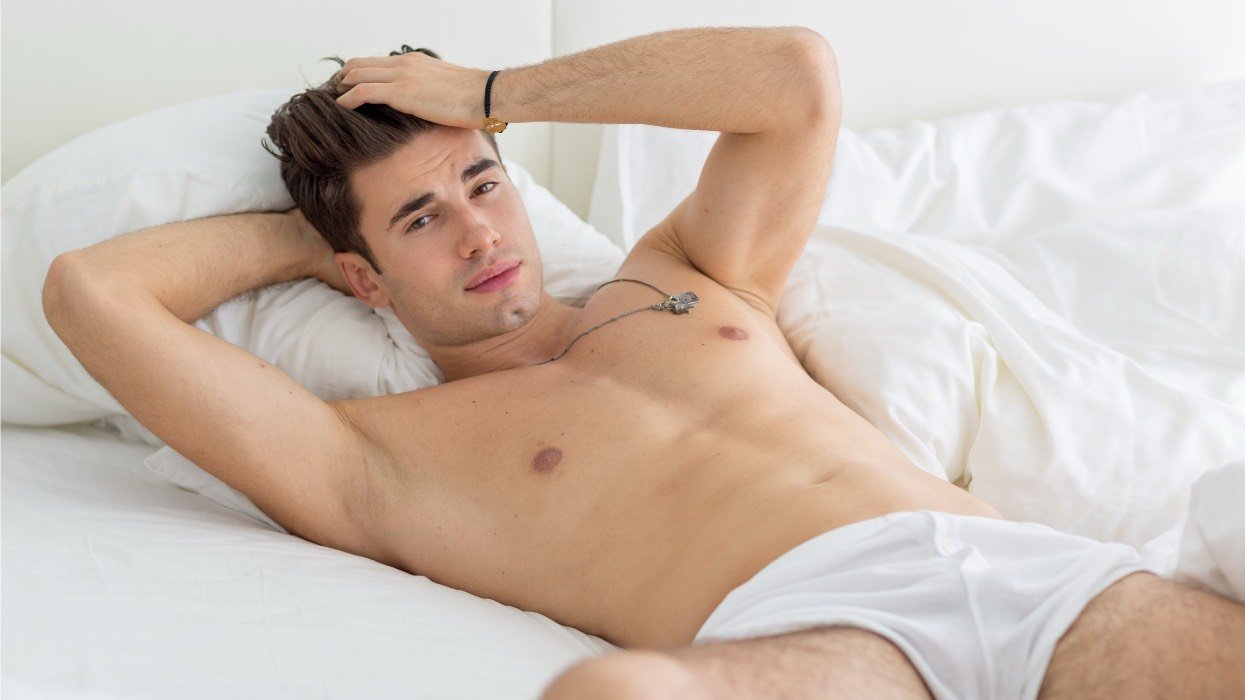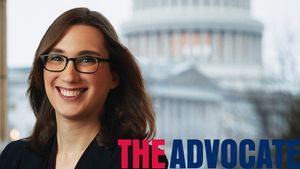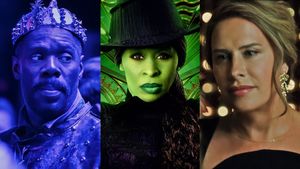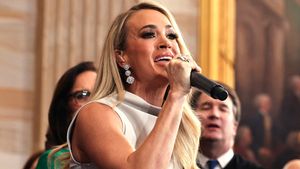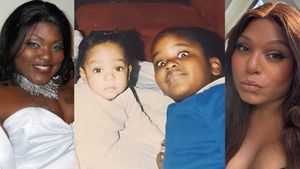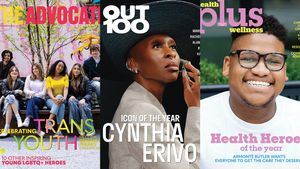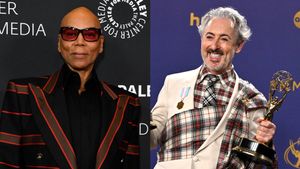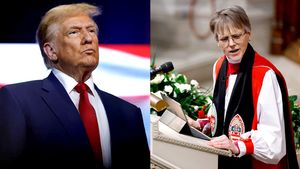Since her momentous coming out last May country music chanteuse Chely Wright has been on a whirlwind tour, promoting her landmark autobiography Like Me while sharing her heartrending story, advocating for LGBT visibility and rights, and of course, singing her heart out in various venues around the country. Wright recently chatted with SheWired about her life and career since coming out, her advocacy and charity work with the LGBT community, the special place in heart for her friend in the music business Mary Chapin Carpenter and how she plans to give the ladies at The Dinah just what they want!
Since her momentous coming out last May country music chanteuse Chely Wright has been on a whirlwind tour, promoting her landmark autobiography Like Me while sharing her heartrending story, advocating for LGBT visibility and rights, and of course, singing her heart out in various venues around the country.
Now, less than a year later, Wright, with her latest release Lifted Off the Ground in her proverbial back pocket, is slated to play for a ready-made audience of adoring fans at the worldís largest lesbian party, the often Bacchanalian, Club Skirts The Dinah in the desert oasis of Palm Springs Calif. this April.
The Kansas City, Mo. born 39-year-old singer songwriter with the strong Christian background first garnered boot-stomping raves with her 1994 debut album Woman in the Moon, helping Wright nab the Academy of Country Musicís title of Top New Female Vocalist in 1995. Among her hit singles are a pair of tunes with terrific country titles, "Shut Up and Drive," off of her 1997 release Let me In, and the title track from her Single White Female album two years later, which landed her at #1 on the charts.
But as she was enjoying chart-topping success, Wright continually struggled with the dichotomy of being a country hit-maker and a closeted lesbian, leading to what can be described from passages in her autobiography as dark and harrowing times, especially for a woman who emanates so much light and life.
In the years leading up to her official coming out Wright continued to churn out songs, but the lyrics began to take on a raw and personal tone that she says she would not have been able to explain away without coming out as gay. Fiercely honest and forthright, Wright says she decided she had to tell her story, prompting her to sit down and write Like Me, a moving and often witty chronicle of her journey to come out as a lesbian amid a country music and Christian backdrop.
Wright recently chatted with SheWired about her life and career since coming out, her advocacy and charity work with the LGBT community, the special place in heart for her friend in the music business Mary Chapin Carpenter and how she plans to give the ladies at The Dinah just what they want!
Thanks so much for speaking with us! I don’t know if you were aware, but you got 3rd place for Gay Woman of the Year on our site.
Oh! I made a list!
You did! You made our list for sure.
Great! I like being on a list! Thank you.
You’re welcome! Now, you have had a couple big announcements this year -- one being that you came out and the other being that you are playing The Dinah.
[Laughs] That is the second biggest announcement of the year.
(Laughs) On some level it is... Have you ever been?
No! In hiding I would never have done something so reckless as to show up to, by-and-large, a lesbian event. I never would have done that.
Not even incognito?
No, I wouldn’t have done it. In fact, I didn’t even know about it. But right when I came out every lesbian on the planet said “you have to do The Dinah!” So, I was like “ok,” and then I quickly came to understand what The Dinah is.
Did you know that there is a name for people like you who have never been?
Um, no. What is it?
You’re officially a Dinah Virgin.
I’m a Dinah Virgin, so I am about to be a Dinah Ho.
Exactly! So how did it come to pass that you would play The Dinah?
My managers emailed me and said, “Hey, do you want to do The Dinah?” I wrote back “Yesss.” So they started hammering out some details and that’s all I needed to know, that they invited me and I said yes! I was excited to know that they wanted the full band, because that’s the most fun – to get to go and bring the whole band.
Absolutely. Well, they usually have really great venues as well.
Oh good!
More on next page...
\\\
(continued)
I’d like to ask you about your fans since you came out. There are women on the periphery of country music – Lucinda Williams, Nancy Griffith, Mary Chapin Carpenter, Allison Krauss -- they all have pretty great lesbian followings. Did you have, or were you aware of a strong lesbian following prior to coming out? Did you notice many gay women at your shows?
In comparison to those gals you mentioned, I don’t think my lesbian following was quite as fruitful and robust, if you will. Certainly it is now, but I did have a considerable number of lesbian fans who were really just incredibly loyal to my music -- and gay men as well.
That’s changed a little bit now; I have quite a few more lesbian fans, who perhaps just didn’t know who I was before, or just feel like they really want to lend support now. But yeah, I had a good number of lesbian fans before.
Lucinda – she just has a lot, like Patty Griffin, and Chapin also has a lot.
Yeah they do…
You know, in fact, I want to say this about Mary Chapin Carpenter. She was the only artist in country music that publicly -- when I came out publicly-- took to her social networking sites and said “Good for Chely Wright!”
So that was to be commended, whereas my other artist friends called me privately, or sent an email but didn’t make a public statement about my coming out. And I will forever, forever love Mary Chapin Carpenter for doing that.
That warms my heart! I have been a Chapin fan for a long time.
I mean, that was so cool and courageous and just why we love Mary Chapin Carpenter. She’s a free thinker and she’s cool.
Now, you said that since you came out, the concentration of your fans that are gay women has kind of thickened, have women taken to now kind of screaming at you? Are you a kind of sex symbol on stage where you hadn’t been before?
Nooo, noo. If they’re screaming, I can’t hear it. I’ve got my ear monitors in, and I can’t hear it.
Well, I will warn you, at The Dinah, you may face screaming throngs of women -- and some in bikinis -- so it might be a bit of a different experience.
Oh my gosh! [Laughs] Well, that’s cool! Hey, it’s my job to see that they have a good time! I take my work seriously. [Laughs]
That’s dedication to your craft… So it’s been about eight months now since your coming out…
Since May 4th, -- so seven-ish months.
Now that you have some actual space between the public coming out and the after-shock sort of craze and support, what can you say has been the best part of that experience?
Well, there have been after-shocks of craze and support, but there have been after-shocks of condemnation and ridicule as well. I don’t talk about those a lot, because I like to focus on the positive, but I do like to be realistic about what its like to make the decision to come out publicly. It’s not all rainbows and parades and sunshine. When a person makes the decision to come out to any person, you expose yourself to what anyone wants to say or think about you – whether you’re a high school teacher or working at a car lot, wherever. You really put yourself out there.
To be in the public eye, and to take on the sort of advocacy role that I chose early on to take on, you know, I have had daggers thrown at me. For the negative daggers that were thrown, those blows get softened by the incredible amount of support and just amazing validation that I feel by being welcomed into a community that frankly I just never knew existed.
I didn’t know how many gay people there were. When you’re in the closet the way that I was in the closet, I wasn’t even in on an underground closet. I wasn’t even just marginally aware and still hiding, I didn’t read anything about gay issues. I guess its like when you know there is something that you’ll never have, you don’t even want to know about it. I just never thought that I would come out. That’s been the most glorious thing about being out, and doing the things I have been doing, is that when I sit down at Borders to do an in-store, people come through the line and say “thank you for coming, thank you for coming,” they don’t realize that I am getting just as much out of it because I continue to meet people like me. That feels good.
More on next page...
\\\
(continued)
Can you talk a little bit about the Chely Wright Scholarship Project and the Light House Project?
When I first started doing the book tour and the record tour, I noticed that people were showing up at shows and in-stores with plain white t-shirts that they had decorated and written “Like Me” on them. Some said “Thank you for being Like Me,” you know, it’s the name of my book. I was speaking to some of them and said, “Why did you write that?” And a gay guy would say “I know I’m a gay guy, and you’re a gay girl, but you’re like me in this regard.”
One guy said “Well, I’m straight, but I read your book and I feel you’re like me in these ways: We both are from small towns, and I always felt a little different, and couldn’t wait to get out of my town.” He said “I just felt like you in that way, I just felt like we were similar.”
I started to see a theme that if we could all look for ways that we are similar, and seek out ways that we connect in our society, rather than ways that we are different, gosh – wouldn’t that be a better world. So my team and I, my best friends, we like to start charities... We started one 10 years ago called Reading, Writing and Rhythm – a nationwide charity in which we put musical instruments in public schools.
So, we started brainstorming about an online forum where, if there were a straight kid who had a gay brother he could go to our online forum and go to the part that had another straight kid with a gay sibling, and maybe they could talk about what that’s like. So that developed into making it bigger.
And ultimately we wanted to build the Gay and Lesbian Center in Kansas City, which is my hometown. And don’t you know that there is not a Gay and Lesbian Center in Kansas City. There are virtual community centers where you can go online and see where the gay clubs are. But there’s not a brick and mortar community education center where people feel safe to go get counseling, or take their parents, or where parents can go and say, “hey, I think my kid is gay, I want to help them find a community.” That’s our ultimate goal, and its called The Lighthouse.
Can you tell me a bit about the scholarship?
We are giving our scolarship every year to gay and lesbian kids, and/or advocates -- a kid who has shown a display of advocacy and showing that they care about equality for all kids. So we have given our first scholarship away already to a young man by the name of Shawn Walsh. His brother, Seth Walsh, unfortunately hung himself in 2010.
I remember when that happened. I’d like to talk a bit about the lead-up to your public coming out. You had timed it with the release of your book, which chronicles the struggles you faced. You must have been mindfully planning your coming out for some time…
As I detail in my book, in the early part of 2006, I had what I call my break down – I now call it my breakthrough. I found myself with a loaded gun in my mouth, ready to end it all, and through that next year I was writing songs and trying just to exist every day through my incredible pain. I guess it would be called depression.
I decided the next summer to come out, because I was in the middle of recording this album with Rodney Crowell with the songs I had written during my break down. They were all heartbreak love songs, and I realized “Holy crap, how am I going to go out and talk to journalists about this record?” They are all about love, and everyone is going to say, “Who are these songs about?” I’m not going to make up a fake boyfriend in Buenos Aires… I saw my reality, again, staring me in the face. I knew that I was painted in a corner and I could see myself easily ending up back in a very dark spot.
Thank God, I had prayed to God for peace and what God was telling me was “You need to stand up. You need to live your life, and tell the truth and as a gay Christian and do this.” So, I sat on my porch with Rodney one day and said “Rodney, I’m gay.” He said “Ok.” And I told him “I’m going to come out.” This was in June of 2007. He said, “How are you going to do that?” And I said, “I don’t know, but I am going to do it well.” He left on that day, and I went downstairs and opened my laptop computer and wrote a title page to my book Like Me, and I started my book on that day.
More on next page...
\\\
(continued)
Wow. That’s an amazing start to coming out.
So I stayed in Nashville for another year finishing my record and writing my book. Not many people knew that I was gay, even people that had worked for me for 16 years. I mean, they may have suspected it, but it was something that I didn’t talk about. So, I moved to New York the next summer. I packed up a U-Haul, enough for a one-bedroom apartment – I still had my home in Tennessee – but packed up things and moved to an apartment in New York and continued to write. And what a lot of people just thought was that I had a book deal. I didn’t. I continued to write…
So the book was in part therapeutic I would imagine.
Well, I just had full confidence I would sell the book somewhere, or if I had to go to Kinkos and bind it myself, I was going to put out a book. I eventually had a meeting with Random House, and my editor there said, “I like this!” I just am lucky that the first person I took it to wanted it, because that’s where I wanted the book.
Meanwhile, while writing, I reached out to the executive directors of GLAAD and GLSEN, on the down low of course, and told them what I was doing. I told them I wanted to educate myself because I wanted to do advocacy work and hit the ground running, and not just be the new out gay lesbian celebrity. I wanted to know what I was talking about and be an effective voice for the community.
We worked together and I really came to understand – I knew my struggle as a gay woman in hiding – but I needed to understand the community’s struggle. I became educated, and really put myself through gay school. I really, really connected myself with the gay leaders in New York, and built a support team of people I knew were amazing. Right when I would be in my apartment for days crying, writing, the head of GLAAD would email me and say “Hey, lets go to dinner, you need to get out of your apartment.” So I created a real circle of friends, and I have to tell you, I had been in Nashville 20 years at the time, and I didn’t have friends like the friends I had made in that short amount of time.
How is it that you came to work with your publicist Howard Bragman?
About a year before my book was to come out, when it was in copy editing, I said “Who is the best? Who is the person who brings people out of the closet? Who does this?” And everyone, everyone said Howard Bragman.
Sure. He helped Meredith Baxter come out and Chaz Bono with announcing his transition.
And John Amichi - he helped a lot of people. He’s obviously a gay man, and obviously gets it. So we met at the Brooklyn Diner. I said “here is my story, here is a rough edit of my book, this is what I am going to do, here is my plan, and I need you to tell me if you feel like you can be helpful.” A couple days later, he got back with me and said, “I can do this, I know exactly what to do.” I didn’t say, “I want you to do this, be strategic like this.” There was a backlash in some ways; I got some daggers thrown at me of people saying “she’s doing this for publicity.” I think its funny that anyone would suggest that I would direct Howard Bragman on publicity. Part of the reason you hire someone to do their job is because they are the best at it. I make no apologies for the way that we did this, because I have to tell ya, it created a dialog where a dialog had never existed. And I am so proud. I guess in some ways I thought he might be jaded, but would do a good job for me anyway. I can’t tell you how many times we sat and he held my hand and got emotional with me. It mattered to him. It was a great experience.
More on next page...
\\\
(continued)
You mentioned gay school earlier, what did that entail pop-culturally? Did you go through the kind of canon of gay and lesbian film, benchmark novels, things like that? Was that at all a part of your gay school?
I read a lot of books. I watched a couple of documentary films, of course The Bible Tells Me So. That’s such a great film. I had long, long sit down talks with the bishop Gene Robinson. More than anything, it was sit-down talks with other leaders, talks with people who had done this before. It was long talks with Rosie O’Donnell. It was people who had mentored me and said “you’re going to be exhausted, you’re going to feel stabbed in the back by this part of the community that doesn’t think you are doing it right. You’re going to feel this, and you’re going to feel that.” It was a lot of looking online, going to books stores and sitting all day pulling every book I could find. It was Dr. Eliza Byard, the executive director of GLSEN, explaining to me the lesbian movement. It was getting back copies of The Advocate, and Out Magazine, and really finding out who’s who in today’s out gay and lesbian world, and learning about transgender issues. I gotta say I was just virtually ignorant about the plight of a trans person in America today. I saw a great film called The Prodical Sun (**), if you haven’t seen it, you must. Kimberly Reed (**), the filmmaker, has become a good friend of mine; her story is… she is a real pioneer, real hero. Just, you know, being in New York kind of lends itself to just soaking up information. On the days when I felt just gayed out, I could go to the met and just walk around and look at the paintings. But it was necessary; it was something that I could not have done in Nashville.
Right, exactly. So what do you have planned for after The Dinah? Do you have anything kind of major planned?
Touring, writing more songs…
The good stuff!
Right. Living openly, changing the world, just being me, and all the way me. That’s annoying people when I annoy people, pleasing people when I please people. It’s getting to be a human with all my flaws and faults. Just me. Getting to be me. Loving music. I gotta start thinking about starting to write for a new record and making the new record. Those things can sneak up on ya.
Yeah, and you have been busy with other things.
Right.
I have one final question, because I am sure all the ladies would like to know. Are you flying solo at The Dinah?
I am bringing my girlfriend. It’s her first time to The Dinah as well. I am happily in a committed relationship.
Congratulations.
Thank you. She's a great native New Yorker, a great gal!
Thanks so much for your time; we are looking forward to seeing you at The Dinah!
Thank you! I’m looking forward to it!
Follow SheWired on Twitter!
Follow SheWired on Facebook!
Be SheWired's Friend on MySpace!












































